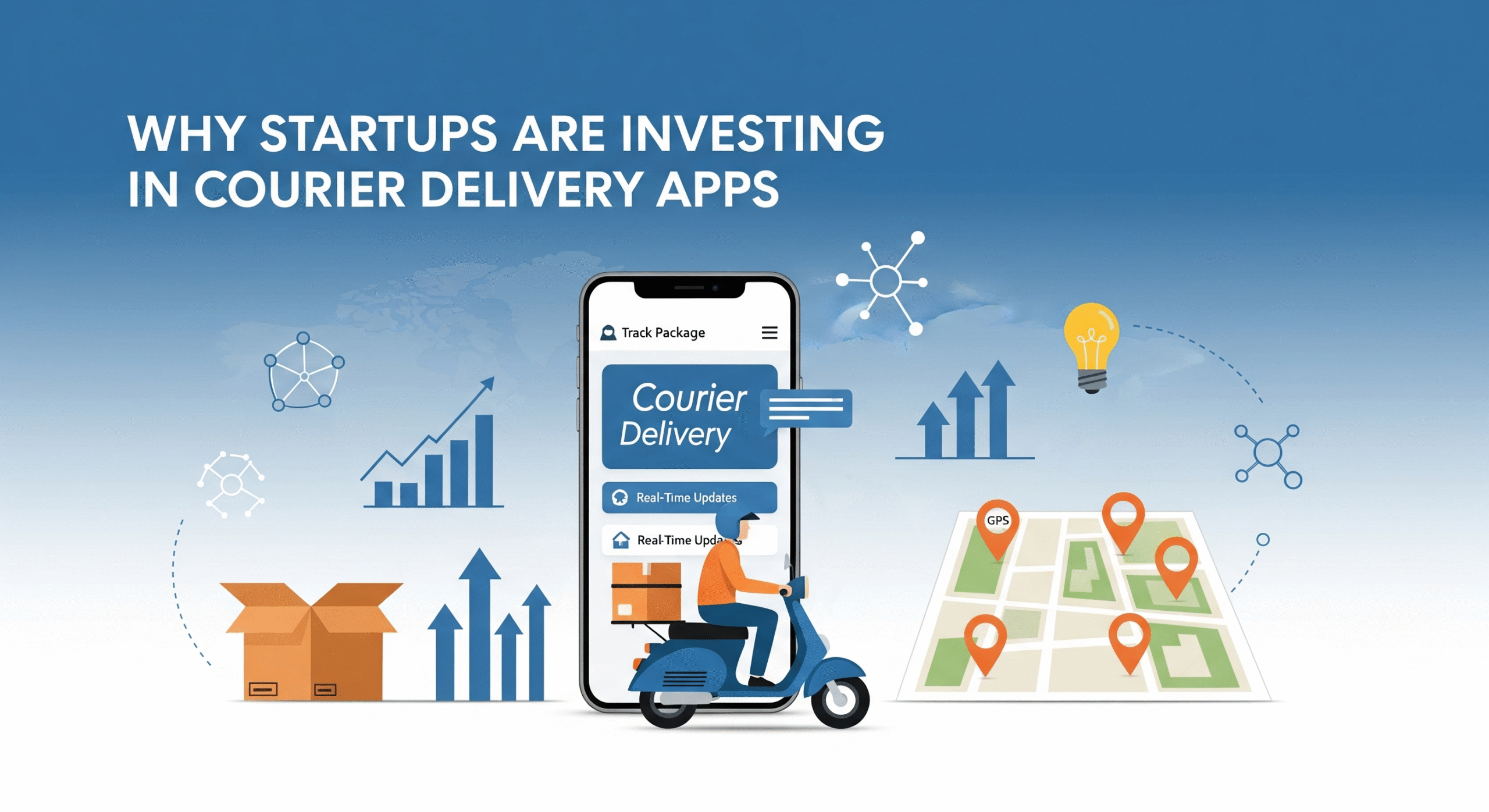The courier and logistics industry is experiencing a dramatic digital shift. With the rise of e-commerce, on-demand services, and same-day delivery expectations, customers demand speed, transparency, and convenience. This has opened doors for startups to leverage courier delivery app development as a way to disrupt traditional logistics models and capture new market opportunities.
But why exactly are startups pouring resources into courier delivery apps? What are the challenges they face in this industry, and how can these challenges be overcome? Let’s explore.
1. Rising Demand for On-Demand Delivery Services
Why it matters:
Customers expect instant gratification. Whether it’s documents, groceries, or packages, on-demand delivery is no longer optional—it’s expected.
Why startups are investing:
-
On-demand models create opportunities to serve both individuals and businesses.
-
Rising e-commerce penetration means higher package volumes.
-
The global shift toward same-day or next-day delivery is fueling demand for fast courier services.
How to overcome challenges:
Startups can implement:
-
AI-powered route optimization for faster deliveries.
-
Real-time tracking to enhance transparency.
-
Last-mile delivery solutions using GPS integration.
2. Growing E-Commerce and Retail Partnerships
Why it matters:
E-commerce sales continue to skyrocket worldwide, and efficient logistics is the backbone of customer satisfaction.
Why startups are investing:
-
Courier apps provide seamless integration with e-commerce platforms.
-
Businesses prefer startups offering flexible and cost-effective courier solutions.
-
Opportunities exist in B2B logistics partnerships with small retailers.
How to overcome challenges:
-
Build API integrations with Shopify, WooCommerce, and Amazon sellers.
-
Provide bulk shipment discounts for retailers.
-
Offer subscription models for frequent shippers.
3. Data-Driven Decision Making
Why it matters:
Traditional courier companies often lack transparency and efficiency. Startups can stand out by leveraging data.
Why startups are investing:
-
Courier apps collect valuable data on customer behavior, delivery times, and routes.
-
Data-driven insights allow for better inventory management and predictive delivery times.
-
Startups can use analytics to refine pricing and services.
How to overcome challenges:
-
Integrate machine learning algorithms for predictive delivery estimates.
-
Use dashboards for real-time analytics.
-
Ensure secure data storage to maintain customer trust.
4. Lower Entry Barriers with Technology
Why it matters:
In the past, entering the courier industry required massive fleets and infrastructure. Today, apps bridge the gap.
Why startups are investing:
-
On-demand courier apps allow startups to connect freelance drivers with customers.
-
No need to own fleets—adopt the gig economy model.
-
Cloud technology enables scalable operations without heavy upfront costs.
How to overcome challenges:
-
Use cross-platform development frameworks (Flutter, React Native) for cost efficiency.
-
Leverage cloud solutions (AWS, Google Cloud) for scalability.
-
Build an MVP (Minimum Viable Product) before investing heavily.
5. Enhanced Customer Experience
Why it matters:
Customer loyalty is built on convenience and reliability. Apps can transform how customers interact with courier services.
Why startups are investing:
-
Features like real-time tracking, digital payments, and delivery updates improve customer trust.
-
AI chatbots and support systems reduce wait times.
-
Personalized recommendations enhance user engagement.
How to overcome challenges:
-
Implement user-friendly UX/UI design for seamless app navigation.
-
Offer multi-channel customer support (chat, phone, email).
-
Provide loyalty programs to retain users.
6. Competitive Advantage in Logistics
Why it matters:
The logistics industry is dominated by big players. Startups need differentiation to survive.
Why startups are investing:
-
Courier apps allow them to focus on niche segments (eco-friendly delivery, local hyper-delivery, or healthcare logistics).
-
Apps create brand visibility and scalability.
-
Technology-driven services give an edge over traditional courier services.
How to overcome challenges:
-
Identify underserved markets such as rural delivery or same-day medicine delivery.
-
Offer customized delivery solutions for different industries.
-
Continuously innovate with AI, blockchain, and IoT integration.
7. Revenue Generation Opportunities
Why it matters:
A well-built courier delivery app is not just a service platform—it’s a revenue engine.
Why startups are investing:
-
Multiple monetization models: delivery charges, subscription fees, advertising, and commission-based models.
-
Scope to expand into B2B delivery, logistics SaaS, and last-mile delivery services.
-
Scalability ensures long-term revenue growth.
How to overcome challenges:
-
Experiment with hybrid monetization models.
-
Use freemium strategies to attract initial users.
-
Partner with local retailers and businesses for steady income.
FAQs
Q1. Why are startups investing in courier delivery app development?
Startups are investing because courier apps enable on-demand delivery, seamless e-commerce integration, scalable business models, and multiple revenue opportunities.
Q2. What challenges do startups face in courier delivery app development?
Challenges include high competition, integration with e-commerce platforms, data security, real-time tracking, and customer retention.
Q3. How do courier delivery apps make money?
They generate revenue through delivery fees, subscription models, commissions, and advertising.
Q4. Which technologies are used in courier delivery app development?
Common technologies include Flutter, React Native, Node.js, AI/ML for route optimization, cloud services (AWS/Google Cloud), and secure payment gateways.
Q5. How much does it cost to develop a courier delivery app?
The cost ranges from $20,000 to $80,000+, depending on features, complexity, and development region.
Conclusion
Startups are investing in courier delivery app development because it offers scalability, profitability, and customer-centric solutions in a fast-growing market. By leveraging AI, automation, and real-time tracking, they can overcome challenges like competition, cost management, and customer retention.
For startups, courier delivery apps are not just a technological investment—they are a strategic move to disrupt the logistics industry and deliver next-generation convenience.

